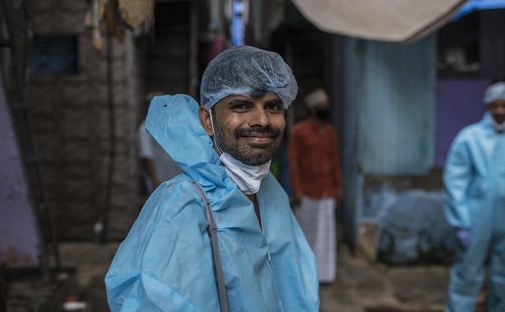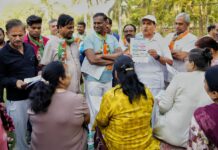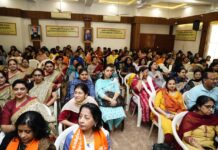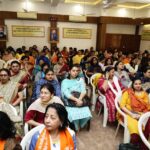
Bharat Chauhan NEW DELHI,Violence prevention and response services have been severely disrupted during the COVID-19 pandemic, leaving children at increased risk of violence, exploitation and abuse, according to a global survey by UNICEF.
Of 136 countries that responded to UNICEF’s Socio-Economic Impact Survey of COVID-19 Response, 104 countries reported a disruption in services related to violence against children. Around two-thirds of countries reported that at least one service had been severely affected, including South Africa, Malaysia, Nigeria and Pakistan. South Asia, and Eastern Europe and Central Asia have the highest proportion of countries reporting disruptions in the availability of services.
“We are just beginning to fully understand the damage done to children because of their increased exposure to violence during pandemic lockdowns,” said UNICEF Executive Director Henrietta Fore. “Ongoing school closures and movement restrictions have left some children stuck at home with increasingly stressed abusers. The subsequent impact on protection services and social workers means children have nowhere to turn for help.”
As countries adopted prevention and control measures to contain COVID-19, many vital violence prevention and response services were suspended or interrupted as a result. More than half of the countries reported disruptions in case management, referral services and home visits by child welfare and social workers to children and women at risk of abuse. Violence prevention programmes, children’s access to child welfare authorities, and national helpline services have also been affected in many countries, according to the responses.
Even before the pandemic, children’s exposure to violence was widespread, with about half of the world’s children experiencing corporal punishment at home; roughly 3 in 4 children aged 2 to 4 years regularly subjected to forms of violent discipline; and 1 in 3 adolescent girls aged 15 to 19 having been victimised by their intimate partner at some point in their lives.
Studies of past epidemics and crises show devastating impacts on the reporting of violence against children and delivery of related services. During the Ebola outbreak in West Africa, for example, child welfare structures and community mechanisms were weakened, and child protection responses were delayed or otherwise affected. In addition, during health pandemics such as COVID-19, limited contact with informal support networks such as friends, teachers, childcare workers, extended family and community members leave children and families more vulnerable.
In response, UNICEF is supporting governments and partner organisations to maintain and adapt critical prevention and response services for children affected by violence during COVID-19. For example, in Bangladesh, UNICEF has provided personal hygiene items including masks, hand sanitizers and eye protectors for social service workers to safely support children living on the streets, in slums, and in climate-affected and hard-to-reach areas, as well as recruiting and training additional social workers for the national Child Helpline 1098.
“Child protection systems were already struggling to prevent and respond to violence against children, and now a global pandemic has both made the problem worse and tied the hands of those meant to protect those at risk,” added Fore. “Too many children rely on child protection systems to keep them safe. In times of crisis, governments must have immediate and long-term measures that protect children from violence, including designating and investing in social service workers as essential, strengthening child helplines and making positive parenting resources available.”
UNICEF Representative in India, Dr. Yasmin Ali Haque said, “UNICEF is committed to supporting the Government of India and partners in strengthening frontline services and personnel as it is an integral part of the overall child protection system and critical for the prevention and response to violence against children during COVID-19 and beyond.”
















